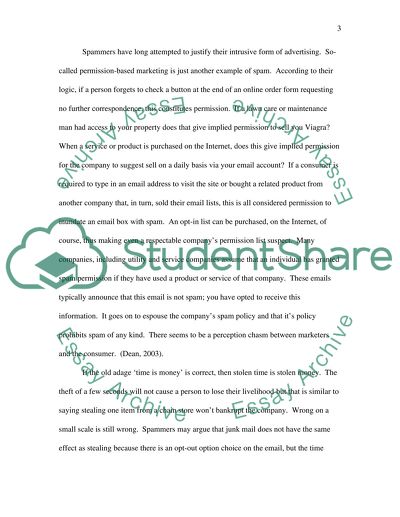Cite this document
(“Spam (Computing) Essay Example | Topics and Well Written Essays - 1500 words”, n.d.)
Retrieved from https://studentshare.org/environmental-studies/1415054-spam-computing
Retrieved from https://studentshare.org/environmental-studies/1415054-spam-computing
(Spam (Computing) Essay Example | Topics and Well Written Essays - 1500 Words)
https://studentshare.org/environmental-studies/1415054-spam-computing.
https://studentshare.org/environmental-studies/1415054-spam-computing.
“Spam (Computing) Essay Example | Topics and Well Written Essays - 1500 Words”, n.d. https://studentshare.org/environmental-studies/1415054-spam-computing.


